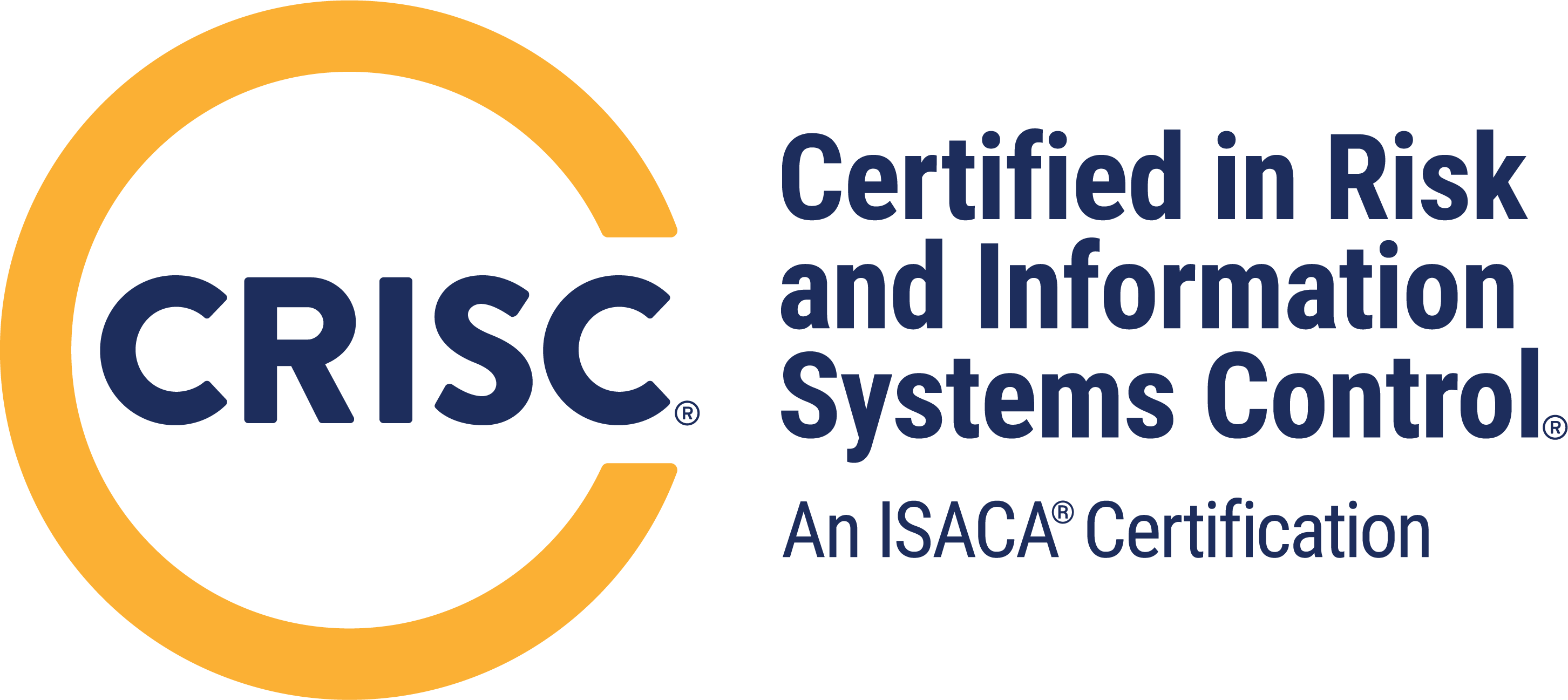The dawn of the digital age brought with it boundless opportunities, seamlessly connecting the world in ways that once existed solely within the realms of science fiction. From the personal joys of video calls with distant loved ones to the corporate triumphs of achieving global operations at the click of a button, digitization has transformed our lives. However, with this monumental shift comes an equally significant set of challenges. The vast expanse of the digital landscape is not without its shadows and pitfalls. Cybersecurity threats, data breaches, and information system failures have become common headlines, echoing the risks that lurk in the background of our connected world.
Businesses, regardless of size or sector, find themselves on the frontline of this digital battleground. As they navigate the myriad of technological advancements, there's a growing realization: in the quest for digital transformation, managing the associated risks is not just a side task—it's central to the mission. Ensuring that businesses not only thrive but also survive in this age requires professionals who are adept at understanding, analyzing, and mitigating these risks. This is where the role of Risk and Information Systems Control comes into focus, as a beacon guiding enterprises through the intricate maze of digital threats and opportunities.
The Digital Transformation and Its Challenges
Digital transformation, a phrase once reserved for tech-forward pioneers, has now become an imperative for virtually every organization. It signifies more than just the migration from paper to pixels or from manual to automated processes. It represents a foundational change in how businesses operate and deliver value to their customers, leveraging technology to innovate, adapt, and grow.
This digital evolution has had profound effects:
- Ubiquity of Technology: Today, businesses of all sizes rely on complex information systems for tasks ranging from customer management to real-time data analytics. Cloud platforms, IoT (Internet of Things), and AI (Artificial Intelligence) are no longer just buzzwords—they're integral components of modern business strategies.
- Consumer Expectations: As personal devices have become smarter and more connected, consumers expect seamless, personalized, and instant digital experiences. The demand for 24/7 services and support, mobile accessibility, and real-time updates has skyrocketed.
- Operational Efficiencies: Companies have realized unprecedented efficiencies and cost savings, allowing even small startups to have a global footprint. Advanced analytics and automation mean businesses can react faster and more accurately to market shifts.
Yet, this transformative journey is fraught with challenges:
- Security Vulnerabilities: The more interconnected our systems become, the greater the potential entry points for cyberattacks. From ransomware that can cripple entire city infrastructures to data breaches exposing sensitive customer data, the threats are multifaceted and ever-evolving.
- Complexity in Integration: While new tools and platforms emerge at a blistering pace, integrating them into existing systems without causing disruptions or vulnerabilities is a significant challenge.
- Regulatory and Compliance Hurdles: As data becomes an increasingly valuable asset, regulations around its use and protection also multiply. Navigating this regulatory landscape, especially for businesses operating across borders, adds another layer of complexity.
The digital age, though filled with potential, presents a challenging tightrope for businesses to walk. Balancing the promise of innovation with the perils of potential risks requires a new breed of professionals, skilled in the art and science of Risk and Information Systems Control.
Certified Security Risk Manager Training

Risk Management is No Longer Optional
In our digital age, a single security breach can lead to not just financial losses, but also a loss in customer trust, brand value, and potential legal repercussions. That's why, risk management is no longer optional for companies.
Risk management is an essential function for corporates for a variety of reasons. Here are four key reasons why:
Financial Stability and Sustainability:
Without adequate risk management, businesses expose themselves to potential financial calamities. Whether it's the fallout from a failed product launch, a massive cybersecurity breach, or unforeseen market downturns, unexpected adversities can lead to significant financial losses. Proper risk management identifies and mitigates these threats, ensuring that a company remains financially viable even in turbulent times.
Preserving Company Reputation:
In today's hyper-connected world, news about company missteps, whether it's a product malfunction or data breach, can spread rapidly. Damage to a company's reputation can lead to lost trust among consumers, shareholders, and stakeholders. This can have long-lasting consequences, from decreased sales to falling stock prices. Risk management aids in preventing, preparing for, and responding to events that could harm a company's public image.
Operational Resilience and Continuity:
Risks, if left unmanaged, can disrupt day-to-day operations. Whether it's a supply chain interruption, a critical system failure, or a natural disaster, these disruptions can halt operations and result in lost revenue. Risk management involves creating plans and strategies (like Business Continuity Plans and Disaster Recovery Plans) to ensure that the company can maintain or quickly resume mission-critical functions after a disruption.
Legal and Regulatory Compliance:
The business landscape is heavily regulated, and these regulations vary by industry, country, and region. Companies face legal and financial repercussions if they don't comply. Risk management involves staying abreast of all relevant laws and regulations to ensure compliance, avoiding legal pitfalls, penalties, and potential lawsuits.

The Role of a CRISC Professional
In the sprawling expanse of the digital realm, with its myriad challenges and ever-evolving threats, stands a unique cadre of professionals equipped to guard and guide organizations: the Certified in Risk and Information Systems Control (CRISC) professionals. Their role in modern corporations is indispensable, and here's why:
Holistic Risk Management:
CRISC professionals aren't just IT experts; they're risk strategists. They possess the ability to identify and evaluate IT and business risks, ensuring that they're not viewed in isolation but in the context of the entire organization's objectives and operations. Their broad perspective ensures that risk management solutions are integrated, comprehensive, and aligned with business goals.
Bridging the Gap:
One of the common challenges in many organizations is the disconnect between IT teams and other business units. CRISC professionals serve as the bridge, ensuring that there's a clear communication line between tech-focused teams and the rest of the organization. This alignment is crucial for creating and implementing effective risk management strategies.
Strategic Decision Making:
Informed decision-making is at the heart of successful risk management. CRISC professionals provide leadership and executive teams with the data-driven insights they need. By assessing potential risks and their impact, these professionals help in prioritizing resources, making cost-effective mitigation decisions, and ensuring that risk management strategies bolster the organization's strategic direction.
Ensuring Compliance and Governance:
In a world laden with regulations and standards, ensuring compliance isn't just about checking boxes. CRISC professionals understand the nuances of various regulations, from data protection standards to industry-specific guidelines. Their expertise ensures that businesses not only stay compliant but also establish strong governance practices, further reinforcing trust among stakeholders.
Continuous Monitoring and Adaptation:
The digital landscape is fluid, with threats and vulnerabilities constantly evolving. CRISC professionals understand that risk management isn't a one-time task. They set up systems for continuous monitoring, ensuring that the organization is always a step ahead in identifying new risks and adapting its strategies accordingly.
In essence, a CRISC professional doesn't just protect an organization from potential pitfalls but also paves the way for it to harness the full potential of the digital age, confidently and securely.
Certified in Risk and Information Systems Control (CRISC) Training
Holding a CRISC Certification...
Holding a CRISC certification not only offers tangible career benefits but also empowers professionals with the knowledge and tools to make a meaningful impact in their organizations.
Having the CRISC (Certified in Risk and Information Systems Control) certification brings several advantages, such as:
- Professional Recognition and Credibility: In the global IT and business landscape, CRISC is recognized as a leading certification for risk and control professionals. Holding a CRISC certification instantly elevates an individual's professional stature, showcasing their expertise and commitment to the realm of risk management. Certified individuals are often viewed as authoritative voices in their organizations, enhancing their credibility among peers, superiors, and stakeholders.
- Enhanced Career Opportunities and Earning Potential: The demand for professionals adept at assessing and managing IT and enterprise risk is ever-growing. Organizations value the unique skill set of CRISC-certified individuals, often offering them preferential consideration during hiring and promotions. Additionally, several studies and surveys have shown that professionals with CRISC certification tend to have higher salary potentials compared to their non-certified counterparts.
- Comprehensive Skill Development: The CRISC certification process is rigorous and covers a wide spectrum of knowledge areas. This ensures that certified individuals possess a holistic understanding of both IT risks and the business implications tied to them. From identifying and assessing risks to implementing strategies and monitoring their effectiveness, CRISC certification ensures that professionals are well-equipped to manage the diverse challenges of modern enterprise risk.
In the intricate dance of progress and protection in the digital age, there stands a clear need for skilled navigators, those who can guide organizations through the potential hazards and towards prosperous futures. The role of a CRISC professional, with their expertise in Risk and Information Systems Control, becomes paramount in this journey.
For those seeking to embark on this rewarding career path or businesses aiming to fortify their teams with such expertise, Bilginç IT Academy proudly offers comprehensive CRISC training. Harnessing a blend of theoretical knowledge and practical insights, the training equips participants to be at the forefront of risk management, ensuring that organizations don't just survive but thrive in today's digital era.